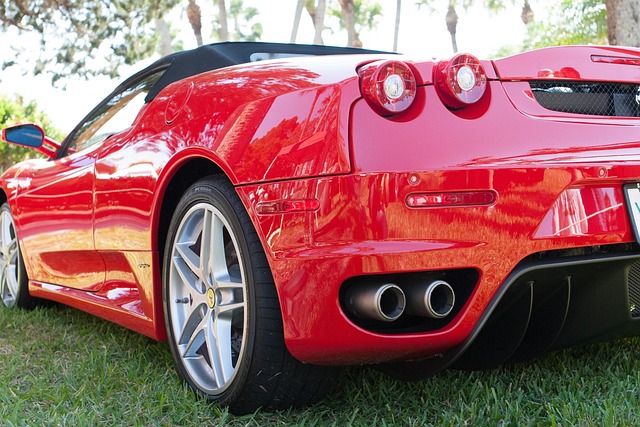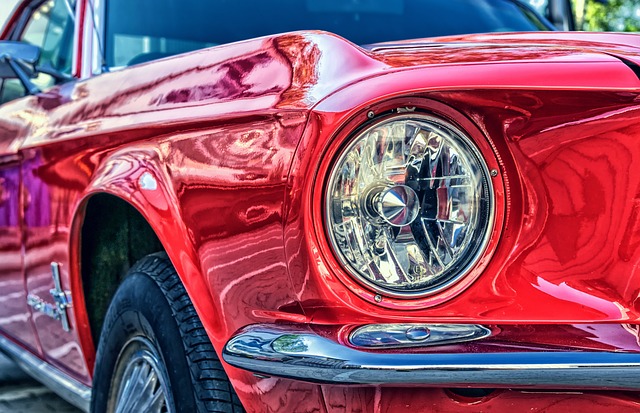A Vehicle Identification Number (VIN) inspector in Los Angeles plays a vital role in ensuring vehicle authenticity and transparency for buyers and sellers. They verify crucial details like manufacturing, model year, ownership history, collision records, and outstanding loans using national databases. The meticulous process involves analyzing online data, conducting physical inspections to check for damage or alterations, and documenting findings accurately. In the LA market, engaging a professional VIN inspector is essential to uncover hidden issues, enhance safety, and make informed vehicle transactions.
“In the bustling landscape of Los Angeles, understanding vehicle history is paramount, especially when it comes to buying or selling cars. This comprehensive guide delves into the significance of the Vehicle Identification Number (VIN) in LA and introduces the critical role of a VIN inspector. Learn how these professionals uncover vital vehicle information, ensuring transparency for all parties involved. With a step-by-step process detailed within, you’ll master fast and accurate VIN verification, empowering you to navigate the market with confidence.”
- Understanding VIN (Vehicle Identification Number) and Its Importance in LA
- The Role of a VIN Inspector: Uncovering Vital Vehicle Information
- Step-by-Step Guide to Fast and Accurate VIN Verification Process
- Ensuring Reliability: Best Practices for LA Car Buyers and Sellers
Understanding VIN (Vehicle Identification Number) and Its Importance in LA

The Vehicle Identification Number (VIN) is a unique code that acts as the fingerprint of every car, truck, and SUV on the road. It’s a 17-character identifier that includes manufacturing information, model year, and vehicle specifications. In Los Angeles, understanding the importance of a VIN goes beyond mere curiosity; it’s crucial for several reasons. VIN inspection is essential for buyers and sellers to ensure they’re dealing with an authentic vehicle, free from any legal or accident history that could impact its value or safety.
For instance, a vin inspector in LA can cross-reference this number against national databases to uncover previous ownership details, collision records, and outstanding loans, helping to prevent fraud. Moreover, knowing the VIN allows for easy verification of warranty eligibility, recall status, and insurance coverage, ensuring that both parties in a transaction are protected.
The Role of a VIN Inspector: Uncovering Vital Vehicle Information

A VIN inspector plays a pivotal role in the process of vehicle identification and verification. They are tasked with meticulously examining a vehicle’s unique Vehicle Identification Number (VIN), which serves as a digital fingerprint, providing access to an extensive database of critical information. This includes details about the vehicle’s manufacture, model year, specifications, and even history, ensuring it meets legal standards for resale or import.
These professionals utilize specialized tools and knowledge to uncover hidden data points, such as accident reports, ownership histories, and potential odometer rollbacks. By cross-referencing VINs against global databases, they help buyers and dealers make informed decisions, safeguarding against fraud and ensuring the integrity of the vehicle’s identity.
Step-by-Step Guide to Fast and Accurate VIN Verification Process

Step-by-Step Guide to Fast and Accurate VIN Verification
To begin, gather all necessary information about the vehicle in question. This includes the Vehicle Identification Number (VIN), which is typically located on a plate at the driver’s side door frame or under the hood. A VIN inspector will need this unique 17-character code to start their verification process. Next, utilize trusted online databases designed for VIN checks. These platforms are equipped with advanced search algorithms that cross-reference your VIN against vast global records, providing instant results.
The vin inspector should carefully scrutinize the returned data, looking for any discrepancies or signs of tampering. This initial screening helps weed out potential frauds and ensures the vehicle’s history is clear. If all appears well, proceed to conduct a physical inspection. This involves visually examining the vehicle for signs of damage, alterations, or non-original parts. A detailed record of this inspection should be kept, documenting any findings for future reference.
Ensuring Reliability: Best Practices for LA Car Buyers and Sellers

When conducting a vehicle identification number (VIN) verification in LA, buyers and sellers must prioritize reliability to ensure they’re making informed decisions. One of the best practices is to engage the services of a professional VIN inspector who has expertise in decoding vehicle history reports and identifying potential red flags. These inspectors use specialized tools to cross-reference data across multiple databases, providing an unparalleled level of accuracy.
Additionally, verifying the physical condition of the vehicle alongside the VIN report is crucial. This includes checking for signs of damage, wear, or discrepancies between the reported mileage and what’s actually displayed on the odometer. A thorough inspection by a qualified individual can help uncover hidden issues that might affect performance or safety, making it an indispensable step in the buying or selling process.
<i ("s) "1516 i-nowinse (notinsear
